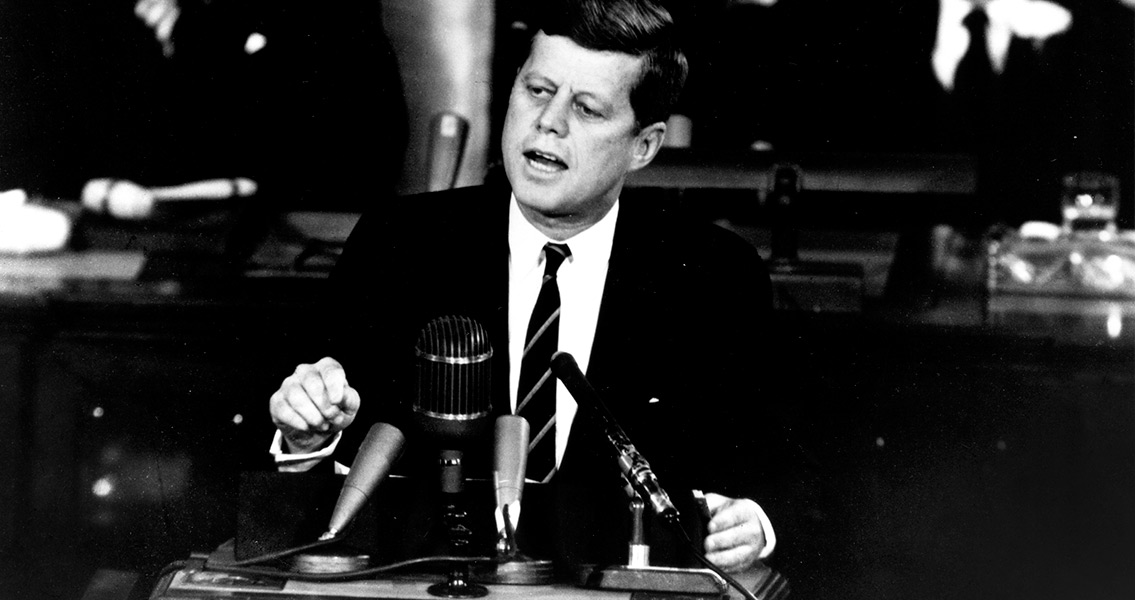<![CDATA["The denial of constitutional rights to some of our fellow Americans on account of race - at the ballot box and elsewhere - disturbs the national conscience, and subjects us to the charge of world opinion that our democracy is not equal to the high promise of our heritage," President John F. Kennedy told America in his first State of the Union Address in January 1961. Progress, however, was slow. Martin Luther King Jr. produced a document in 1962 imploring the president to use an Executive Order to further the Civil Rights cause. Kennedy did not execute such an order. Kennedy's short term as President is often portrayed as slow to respond to civil rights violations, and simply reactionary to events. New scholarship, however, has called for a revision of this attitude towards Kennedy's record on civil rights. Brian E. Lee, in an article published in the journal Federal History, has sought to present Kennedy in a wider context. After the landmark Brown vs Board of Education case presented an ambiguous pronouncement - that public schools desegregate "with all deliberate speed" - federal judges issued conflicting decrees. Congress, also, did not provide federal statutes to clarify the situation; school desegregation was omitted from the Civil Rights Acts of 1957 and 1960. "President Dwight Eisenhower provided virtually no moral leadership on the issue, never once endorsing the Brown decision," Lee notes. As a Senator, Kennedy, though by no means a civil rights crusader, urged Democrats to back the Brown decision. “I have no hesitancy in stating my views and I would say tonight as I said in Massachusetts,” Kennedy told a Mississippi audience in 1957, “I have accepted the Supreme Court decision as the law of the land.” Importantly, Kennedy was elected by a very small majority, garnering 34,220,984 votes against Richard Nixon's 34,108,157. "Kennedy’s thin electoral victory all but diminished any hope of passing sweeping reforms," Lee explains. "Instead, the Kennedy administration energetically enforced existing laws and tested the limits of executive authority." In Prince Edward County, Virginia, Kennedy took active measures to restore public school education in 1961. Prince Edward County, a poor, rural community, had closed public schools in defiance of a federal court order to desegregate. Within its first 100 days, however, the Kennedy administration had employed the power of the federal government in an attempt to reopen schools in the county. "President Kennedy provided hope to the locked-out children by using the moral authority of his office to condemn school closings and by authorizing his attorney general to find a remedy," argues Lee. "The Kennedy administration, therefore, not only took quick action to reopen the schools, but it signaled in unmistakable language that the federal government planned to enforce the Brown decision." By examining the Kennedy administration's actions in Prince Edward County, Lee has convincingly argued that there is a need to reassess civil rights under Kennedy's presidency. Analysis of this under-studied piece of history has not really figured in accounts of the administration's civil rights performance. If we look past the era's more publicised crises - the Freedom Rides which challenged segregation on public transport; the riots at Ole Miss in 1962; and the Birmingham riot in 1963 - we can gain a more comprehensive view of Kennedy's presidency. For more information: www.shfg.org Image courtesy of Wikimedia Commons user: BotMultichillT]]>
Kennedy's Civil Rights Record Re-Evaluated
